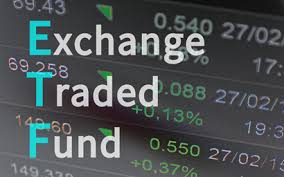Does Bitcoin need an ETF?

What is an ETF? | How do they work? | Does Bitcoin need one?
Lately, there has been a lot of talk in the Bitcoin community about possible ETFs being approved/not approved by the Securities and Exchange Commission. To understand all this ETF talk, you must first understand what and ETF is and is not.
An ETF, or Exchange Traded Fund, is an entity that purchases a particular type of asset (shares of stock, bonds, oil futures, gold bars, foreign currency, etc.) and then divides the ownership of those assets into shares, which are then sold to investors. Shareholders of the ETF, do not directly own or have any direct claim to the assets, but are entitled to a portion of the profits. The management of the ETF shares is controlled by the Authorized Participants. Participants are different from investors. Authorized Participants are large financial institutions such as banks or investment companies. If you do not actually own the assets, then why would you invest in an ETF? By owning an ETF, investors get the ability to sell short and buy on margin. Another advantage is most ETFs have lower fees than mutual funds and some capital gains benefits.
Now that we have a simplistic understanding of what an ETF is and how they are used, I ask, would Bitcoin want an ETF? To properly answer this question, let’s take a look at some use cases for ETFs.
Use Case 1:
Common ETFs used for assets such as Precious Metals; Gold (GLD) and Silver (SLV), are often preferred by investors not only because of margin trading and capital gains benefits, but also because it is costly to own the actual physical metals. To own physical metals, you would need to pay for transporting those metals and must provide good security to keep them safe. This may mean paying a third party, hire guards, and/or buying a safe. For some investors, they would prefer to simply own a Precious Metal ETF rather than the physical asset to avoid these efforts and costs. As for Bitcoin, transporting digital currencies is far easier than metals, you can avoid third party risks by moving the Bitcoin to a paper or hard wallet, and the cost of securing the asset is fairly low with little knowledge.
Use Case 2:
ETFs are also used for commodities other than Precious Metals such as Crude Oil (USO) and Natural Gas (UNG). Even more so than precious metals, commodities like Oil and Gas are difficult to take possession of. Could you imagine having a tanker truck pull up to your front door and ask where he is off-loading? In this case, ETFs make perfect sense. Most if not all Oil and Gas investors would rather own a stock or ETF than the physical asset.
Use Case 3:
Some of the most common ETF don’t actually deal with commodities but rather other exchange traded funds. In this scenario, ETFs are created to invest in a diversified class of other assets, usually stocks or other funds. For example, the (DIA) fund tracks the Dow Joes Industrial Average and the (XLE) fund tracks financial institutions. In this case the funds can rebalance their ownership each day and maximize profits. With the advantages that ETFs have over mutual funds, this use case of ETFs is very reasonable to investors as well.
Does Bitcoin need and ETF?
Now that we understand the use cases for ETFs and the advantages of each, let’s discuss a Bitcoin ETF. Like Use Case 1, Precious Metals, users of Bitcoin can either take possession of their currency or leave it in a third party exchange/wallet. For security reason, I do not suggest storing your Bitcoin in a third party system unless you have a use for it there. I prefer to always store my cryptocurrencies in my own possession, meaning, I am the only one who has access to the private keys. In this use case, an ETF would not be preferable to me.
As for Use Case 2, Oil and Gas, I would never want to take physical possession of Oil or Gas but again, I would always want tight control over my Digital Currency. Just like Use Case 1, and ETF is not needed for Bitcoin here.
The interesting question for me is, does Use Case 3, make a reasonable argument that Bitcoin needs an ETF? Use Case 3 takes advantage of the profit potential of several different investments and is able to rebalance them to maximize return. Could this be used for Bitcoin? The simple answer is No! Bitcoin is a single currency and there would be nothing to rebalance. But the idea of rebalancing is quite interesting if we are discussing several cryptocurrencies, such as Bitcoin, Etherium, Dash, Monero and perhaps Litecoin or Ripple.
Imagine a fund where you make a single investment and then have the potential to earn profits from cryptocurrencies regardless of how a particular one is performing. From a properly managed cryptocurrency ETF, you would be getting a return without having to own all the currencies and be constantly rebalancing between them. Those efforts and knowledge of each would be the responsibility of the fund, leaving you free to count your return.
More to come on a possible Cryptocurrency ETF!
Loki Sullivan
Bitcoin Philosopher